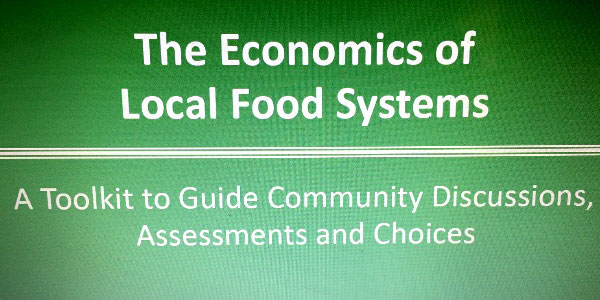The benefits of investing in local food are obvious. It supports economic growth and creates new jobs. It provides area residents with access to fresh, organic, nutritious food—giving them the opportunity to meet the farmers who raised it and to understand their practices. And it eases the tremendous burden our industrial food system places on the environment.
What’s been less evident is how communities go about building the economic case to fund local food initiatives. Now, thanks to the USDA, the path is clearing. The agency recently announced the availability of “The Economics of Local Food Systems: A Toolkit to Guide Community Discussions, Assessments and Choices.”
According to the USDA’s post, the toolkit is designed to help local food stakeholders tell the story of how investing in strong local and regional food systems—including farmers markets, food hubs, and other local food outlets—can revitalize rural and urban economies across the country.
As a practical and usable resource for community leaders, businesses and others, the toolkit includes seven modules and guidance to evaluate investments in local and regional food systems based on real-world projects, experiences and applied research. Best of all, it’s free!
Much of the USDA’s support of local and regional food systems is coordinated through its Know Your Farmer, Know Your Food (KYF2) initiative. In response to the surge in consumer demand for locally-produced food, the initiative is shaping programs and policies that:
- Stimulate food- and agriculturally-based community economic development
- Foster new opportunities for farmers and ranchers
- Promote locally- and regionally-produced foods
- Cultivate healthy eating habits and educated, empowered consumers
- Expand access to affordable, fresh and local food
- Demonstrate the connection between food, agriculture, community and the environment
As mentioned on the KYF2 website, local and regional food is a multi-billion dollar market that is rapidly growing quickly. Conscious eaters are voting with their wallets and driving change. Keep up the good work.

